Photographs: Jessica Rinaldi/Reuters Apekshit Varshney
Follow these simple tips and create an impressive resume while you are in the campus.
What do you think goes a long way in impressing your interviewer?
Your appearance, communication skills, or intelligence?
No, it is a piece of paper tucked under your arm -- your Curriculum Vitae that can make or break your future.
In your absence, your CV does the talking. It defines who you are, your potentials and what a valuable person you can be for an organisation.
Before you leave your alma mater behind, before the tag of jock, queen bee or a nodding nobody is etched on you forever, make sure you make most of the opportunities you can enjoy as a student.
Building yourself and your CV with these activities will ensure that you shine.
Internal Assessment
The perfect way to kick-start your professional life is by interning at a place you would want to work in the future.
"Somewhere between all the petty labour you will be asked to do, you will realise what you think about the job," says Naveen Nair, a PR executive.
For example, if you are a media student -- try interning at a number of places like a publication, PR firm or an ad agency.
The best part about internships are that they give you the leverage to try various arenas without having to sign a life-long contract.
Having a number of internships on your CV shows that you are not only an active individual but also that you have that extra amount of work experience compared to others.
"The internship experience can be a negotiating factor and one can definitely be in a position to demand higher salary compared to a fresher," says Upasana Makati, founder of White Print, a lifestyle magazine for the visually impaired.
Courtesy:YouthIncMag.com

Please click NEXT to continue reading...
Online gimmicks
Image: For representational purposes onlyPhotographs: Reuters
Websites like Coursera and Udacity offer a myriad of online courses that can be very beneficial for your professional development.
Several employees are asked to update their knowledge through the courses offered by these websites in their work hours, so there is no denying its importance.
Apart from online courses, you can do a variety of things on the web.
Make a portfolio on a website like DeviantArt.com, write a blog and become a social media influencer -- these will help you grab virtual jobs that rely on the reputation of your online work. It's all a click away.
ALSO READ How to convert your internship into a full-time job
Certificate workshops
Image: Image for representational purposes onlyPhotographs: Satish Bodas/Rediff.com
Several college festivals organise workshops in association with professionals.
"Being a part of these workshops shows that you have the technical expertise in that subject," says Shrey Singh, overall co-ordinator of Techfest, IIT Bombay.
Look out for workshops pertaining to your areas of interests also held during movie, art, literature and cultural festivals.
Non-profit work
Photographs: Courtesy Careers360
Volunteering with several non-profit organisations will give you much exposure.
One such organisation is AIESEC, the world's largest student run organisation.
It mainly provides global internships and leadership building opportunities.
For your spiritual upliftment, you could join the Art of Living (AOL) which concentrates on social transformation, child education, women and youth empowerment.
"Universities like Stanford and XLRI give extra credit points for having done the Art of Living course," says Lavita Singhania, a volunteer with the organisation.
ALSO READ How to land your first job
Spend a summer in school
Image: For representational purposes onlyPhotographs: Enrique Castro-Mendivil/Reuters
Nothing beats the summer school experience," says Sakshie Rastogi, who received a scholarship to attend King's College summer school in London.
"My summer school certificate and experience definitely made me stand out as compared to other freshers during my interview," she added.
Lend a hand
Image: For representational purposes onlyPhotographs: Rediff Archives
NGOs don't just need volunteers; they need people to inclusively work for them. They therefore hire several students from top technical fields," says Prajakta Rao who was recruited by an NGO after her graduation.
If you aspire to work for top NGOs like Teach for India or Gandhi Fellowship in the future, your efforts need to begin today.
You may teach slum kids with Make a Difference, work for women empowerment with Akshara or simply help organise a cleanliness drive in your area.
How to bag an internship
Image: For representational purposes onlyPhotographs: Rediff Archives
- Look through internship websites like Twenty19.com and Letsintern.com
- Keep in touch with your college placement team because they are well informed about companies looking out for interns.
- There are several groups on Facebook where professionals post ads for part time job openings and intern requirements. Join or subscribe to their feeds.
- Check out company websites that are relevant to your field of interest and send your CVs to the HR desk.
ALSO SEE 10 things we wished interns knew
Make a CV, not a bhel puri cone
Image: For representational purposes onlyPhotographs: Francois Lenoir/Reuters
- Customise your profile. A selector can easily differentiate a generic CV from a CV specially edited for a job. No one wants to read irrelevant things, however significant.
- Your CV should be a realistic reflection of your achievements. There is a difference between a little exaggeration and over the top marketing.
- Your career objective needs to be practical. When the interviewer asks you where you see yourself in five years, "In your chair" is not the most polite answer.
- Put recent information first and your achievements from when you were 14 last. Avoid grammatical errors and never copy-paste from the internet.
- An honest, to the point, simply crafted CV always stands out against a flashy, aggressive one.



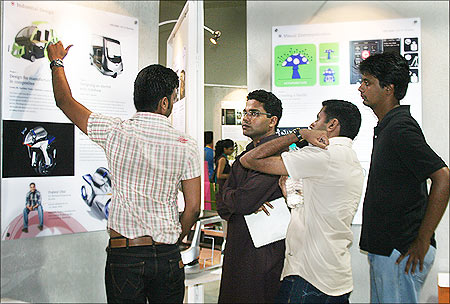
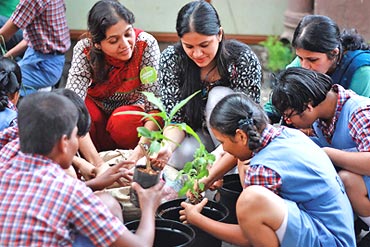

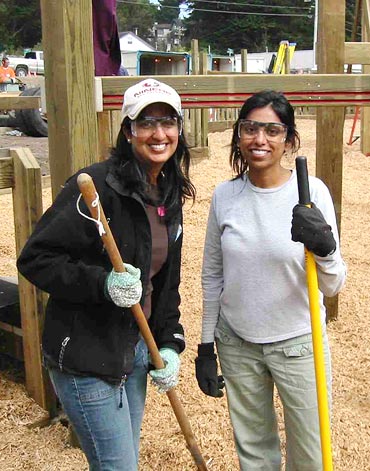
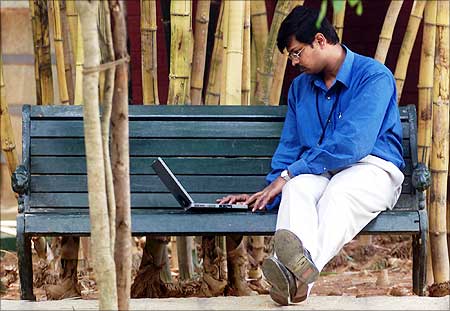
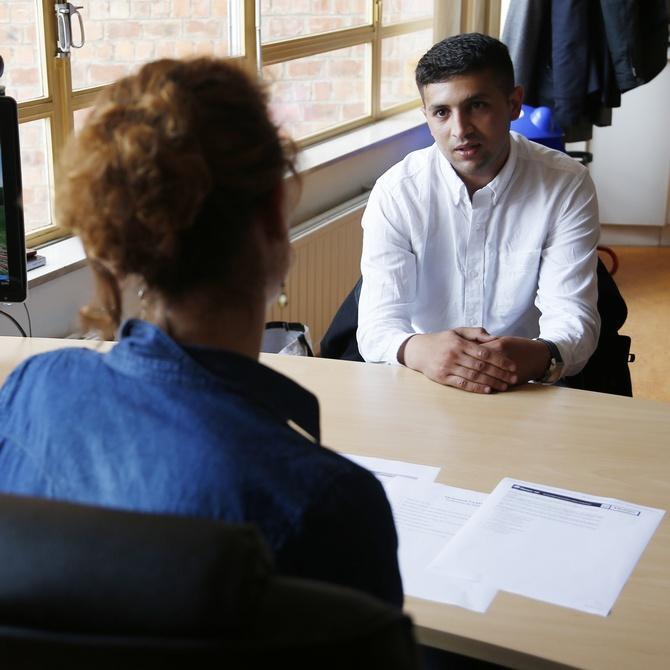
Comment
article